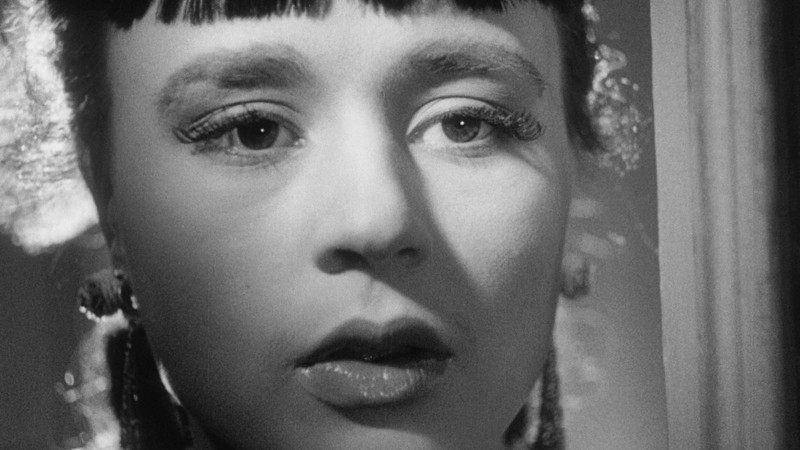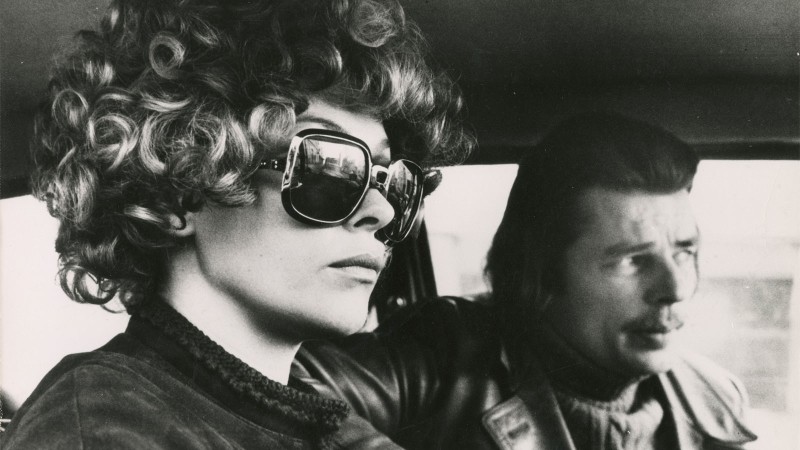Underground on Top

We’d barely processed the loss of Anouk Aimée when news broke on Thursday that Donald Sutherland had passed away. He was eighty-eight. In the New York Times, Clyde Haberman remembers Sutherland as “a laid-back battlefield surgeon in M*A*S*H, a ruthless Nazi spy in Eye of the Needle, a soulful father in Ordinary People, and a strutting fascist in 1900.” A few years ago, Mark Harris observed that Sutherland’s “work in Klute is a reminder of what a generous and flexible leading man he has been with actresses as different as Julie Christie (Don’t Look Now) and Mary Tyler Moore (Ordinary People)—and also of how resistant he is to cliché.” We’ll take a closer look at Sutherland’s life and work next week.
- Newly restored, Vittorio De Sica’s Shoeshine (1946) carries on playing at New York’s Film Forum for another week. In postwar Rome, two street kids caught up in a scam are tossed into the grind of the juvenile detention system. “Much of the action is sheer melodrama—which is no pejorative,” writes the New Yorker’s Richard Brody. “De Sica, working with a host of screenwriters, builds a teeming story—involving broken friendships, families, institutions, dreams, and lives—in which elements of observation and research are concentrated into intensely emotional moments that heighten the film’s moral and mnemonic power.” Brody suggests that “neorealism carried within itself its own destruction,” and he sketches the divergent paths eventually taken by De Sica, Rossellini, Visconti, Fellini, and Antonioni.
- For RogerEbert.com, Robert Daniels talks with Barry Jenkins about our release of The Underground Railroad (2021), his adaptation of Colson Whitehead’s 2016 novel as a limited series. Daniels is especially curious not only about The Gaze—a companion film Jenkins introduces in the set—and the inclusion of deleted scenes, but also about the director’s decision to encourage viewers to listen to the commentary tracks for each of the ten episodes in the order in which they were shot rather than according to the narrative throughline. Jenkins says that “it’s important for young filmmakers to see the choices we make as we create these things. We film the scenes and some of those scenes are great. They’re very strong. But just because they’re strong scenes doesn’t mean they belong in the show. It doesn’t mean they belong as a part of our narrative . . . I put my whole soul into the show, my whole soul.”
- Writing about seeing Lana and Lilly Wachowski’s debut feature, the lesbian heist thriller Bound (1996), with a lesbian friend—and before she’d come out as transgender—McKenzie Wark recalls: “We’d expected to hate-watch; instead, we found a film to which we could feel connected.” Slate’s Dan Kois talks with Lilly Wachowski and sex columnist and consultant Susie Bright, who says, “You know what I love about Bound? It’s about working-class characters who are divorced from bourgeois aspiration and from the platitudes of capitalist American Dream happiness.” “I love all that,” says Wachowski. “I love the idea of queerness that fights hierarchies, and I certainly feel like that was something that we set out to do.”
- Jessica Kiang’s Sight and Sound column “The magnificent ’74” is back with a tight but mighty reading of Roman Polanski’s Chinatown, whose “existence at the tangled nexus of so many strands of significance that stretch, as in an obsessive detective’s red-string diagram, between Hollywood and the world, and between 1974’s attitudes—towards sex, race, violence, auteurism, class, politics, and film industry power dynamics—and those of today, contributes to its endlessly re-parsable legacy.” Jordan Hoffman, too, is looking back fifty years, when “audiences suddenly found themselves inundated with movies suggesting that no immoral act was too insidious for the powers that be, righteousness could never prevail, and anyone who tried to take a stand would be doomed.” Hoffman’s piece for Foreign Policy takes on Chinatown, Francis Ford Coppola’s The Conversation, and Alan J. Pakula’s The Parallax View.
- It’s summer, it’s the weekend, let’s wrap with a playlist. “I’ve had Monterey Pop on the brain recently, since last month I published an in-depth piece about the life and legacy of ‘Mama’ Cass Elliot,” writes New York Times pop music critic Lindsay Zoladz. “The festival—like D. A. Pennebaker’s era-defining, fly-on-the-wall documentary Monterey Pop—was a snapshot of the precise moment when the prevailing sounds of folk-rock began to give way to a louder, gnarlier kind of rock ’n’ roll practiced by Hendrix, the Who, and another of the weekend’s breakout stars, the lead singer of Big Brother and the Holding Company, Janis Joplin.” Zoladz’s playlist includes all of those acts as well as Otis Redding and Ravi Shankar. Roll down a window.



